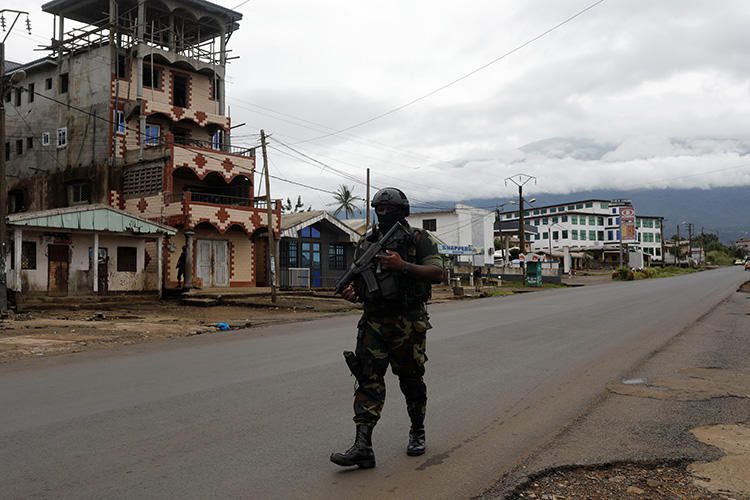After many false starts, serious talks between the Cameroonian government and Anglophone separatists seemed to have gotten underway to end the three-year conflict.
Meeting for the first time since open conflict broke out in 2017, representatives of the government in Yaounde and nine leaders of the separatist movement for independence sat around the same table to talk over a possible ceasefire and eventual peace.
Thursday’s talks got underway as the self-declared leader of the separatist movement for an independent Ambazonia Republic, Julius Ayuk Tabe languishes in jail.
The government was represented by Ferdinand Ngo Ngo, with the ambassadors of the United States, France and Germany in Cameroon as facilitators.
The UN was there as its honest broker.
Prior to the hint of talks, Cameroon’s English-speaking Southwest and Northwest regions have been caught up in a seemingly endless cycle of violence as government forces battled separatist rebels fighting for the “liberation” of the area from “Francophone strangulation”.
Thousands have died and whole communities have been forced to flee in the ensuing atrocities which rights watchdogs claimed were committed by both sides of the conflict divide.
The catalyst for the armed struggle came in 2017 when the regions’ Anglophone lawyers were up in arms against what they perceived as marginalisation by Cameroon’s Francophone majority.
The nature of Cameroon’s Anglophone and Francophone divide was sewn up in the immediate aftermath of the First World War.
The League of Nations, a precursor to the United Nations had wrested the then colony of Kamerun from a defeated Germany and placed it under the trusteeship of Britain and France.
Despite unification shortly after both world war victors gave their respective territories independence, the cultural faultlines have persisted, leading to periodic tensions over the years, a situation which eventually degenerated into open conflict.
Mediation by Switzerland took place last year as the European nation facilitated talks but they could not bring an end to the conflict or orchestrate a ceasefire to the relief of the country’s war-weary people.
However, there seems to be hope among ordinary Cameroonians of at least a ceasefire this time with the reported involvement of Mr Tabe who though imprisoned remains hugely influential within the ranks of the separatists.
But what inspires hope for some, arouses suspicion for others who are already distrustful of Tabe even when he seems to be sticking to a familiar refrain that his movement will remain “unshakably committed to the restoration of the independence of the homeland”.
What seemed like a disclaimer appeared on Ambazonia’s main Facebook page on July 2, the same day Tabe and his jailed comrades in arms including Bar Shufai and Prof Awasum were spirited to the residence of Yoaunde’s Archbishop for pre-talks dialogue with Cameroonian officials.
“Should Sisiku Ayuk Tabe be trusted? the statement inquired.
“Attending a meeting with the government not as a free man but under prison chains should be questioned properly” said the statement.
Ambazonian officials say the next phase of the process towards a ceasefire which includes freeing all war prisoners will be crucial to the outcome of future talks.
South Africa, widely seen as a neutral country will most probably host the next round of talks, but the separatists are already smelling a rat.
“There could be a high level conspiracy going on because none of the citizens were informed prior to this dialogue as the government is keeping it behind close doors which is indeed questionable” said the Ambazonian statement.
Both sides are currently feeling the pressure by the international community to stick to the negotiating table and give peace a chance.
WN/as/APA


